Rebuilding Ukraine: Lithuania to aid in reconstruction of Ukrainian schools damaged by shelling
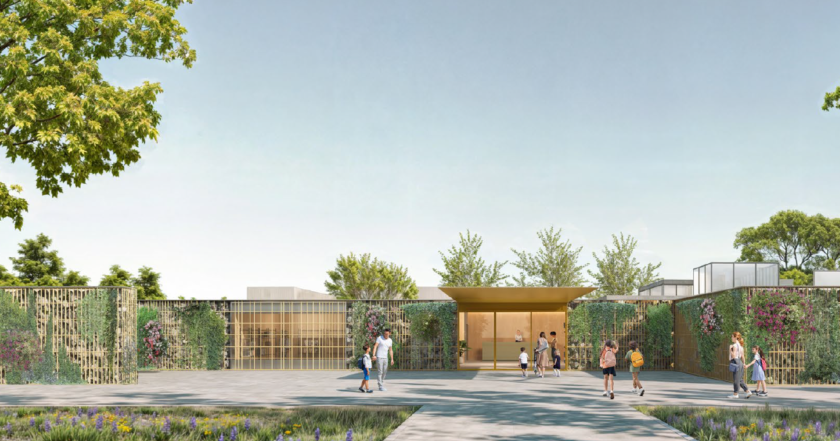
As part of the international competition of the Future School for Ukraine project, the top architectural solutions have been identified to facilitate the efficient, adaptable, and sustainable reconstruction of schools across the country.
Rubryka writes about this with reference to the press service of the Central Project Management Agency of Lithuania.
What is the problem?
The damage caused by Russia to Ukraine's education sector is immense. According to the Ministry of Education and Science of Ukraine, more than 1,600 schools have been affected by the attacks. As many as 197 have been destroyed. Rational solutions and the international community's support are needed to rebuild them.
What is the solution?
The competition, launched by Lithuania and backed by architecture and education experts, drew teams from ten countries worldwide. Lithuania's Fund for Development of Cooperation and Humanitarian Aid awarded the project 500,000 euros in funding. All participants were required to collaborate with Ukrainian architects, resulting in designs that catered to the specific needs of Ukrainian communities.
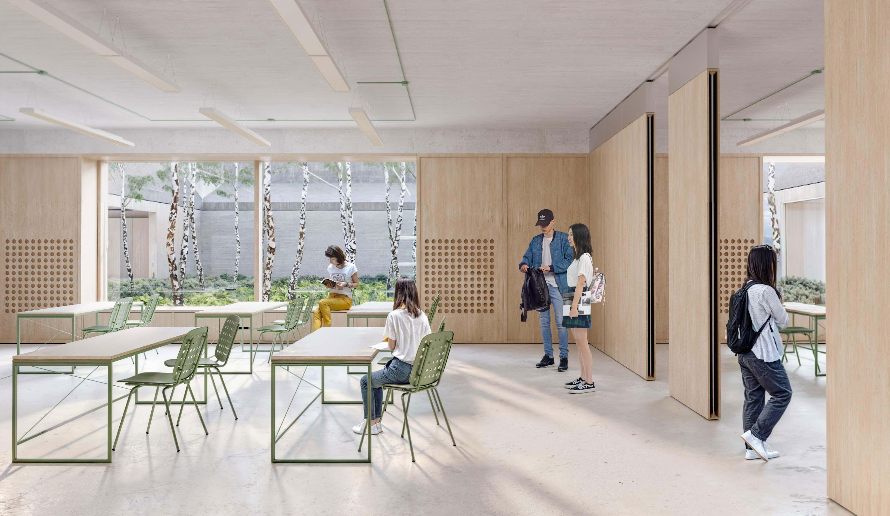
Minister of Education and Science of Ukraine Oksen Lisovyi emphasized the importance of this initiative:
"Russia's war against Ukraine is an existential struggle for the future of Ukraine. The enemy wants to seize our lands, destroy our language and culture, and prevent a new generation of free Ukrainians from growing up. That is why the restoration and development of education are more important today than ever before. Every restored school, every shelter, and every return to a living educational process is a step towards preserving our identity. The development of an adaptive school project is an opportunity to rebuild more schools, saving money and time on the technical preparation of the project. I am grateful to our partners from Lithuania for their continued support of our education and for launching the Future School for Ukraine initiative."
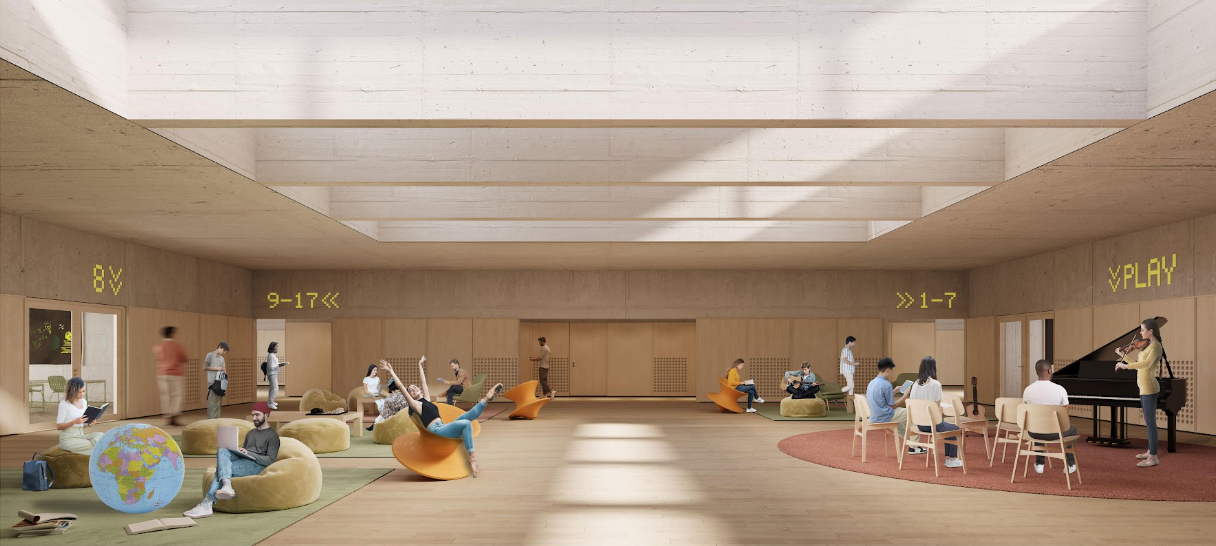

Rebuilding Ukraine: Ministry of Education, UNICEF, and Buffet Foundation unite to provide eight school shelter projects for communities
Як це працює?
The award for the competition went to the team of architects from Italy, "Scandurra Studio Architettura srl," who collaborated with Ukrainian architect Mykhailo Vustianskyi. Their adaptive design for a technical school will be implemented in future school constructions in Ukraine.
The Ukrainian team led by Danylo Bilokopytov and their colleagues "Orange Architects" from the Netherlands was coming in second place. In contrast, third place went to the Finnish team, "Huttunen-Lipasti Architects Ltd," working with Ukrainian architect Dmytro Sorokevych. All submissions for the competition are available to view on the "School of the Future for Ukraine" website.
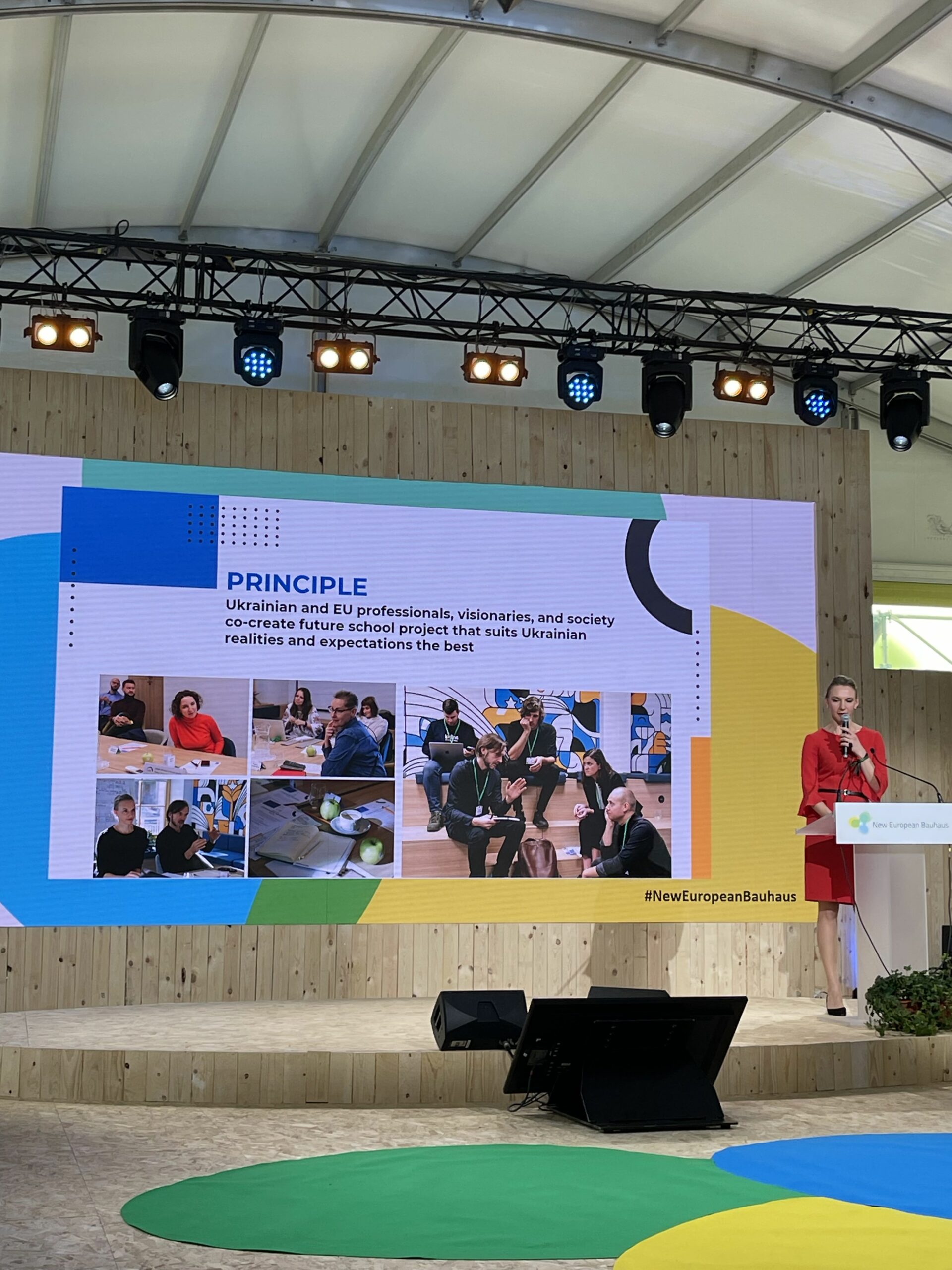
Deputy Minister of Foreign Affairs of Lithuania Simonas Šatūnas, commenting on the results of the competition, noted:
"The Future School for Ukraine project is an inspiring contribution by Lithuania and international partners to Ukraine's victory and the future of Ukrainian children… The efforts of ten teams of architects helped to draw the attention of the international community to the fact that bomb explosions and alarm sirens are yet more frequent than the school bell in Ukraine today."
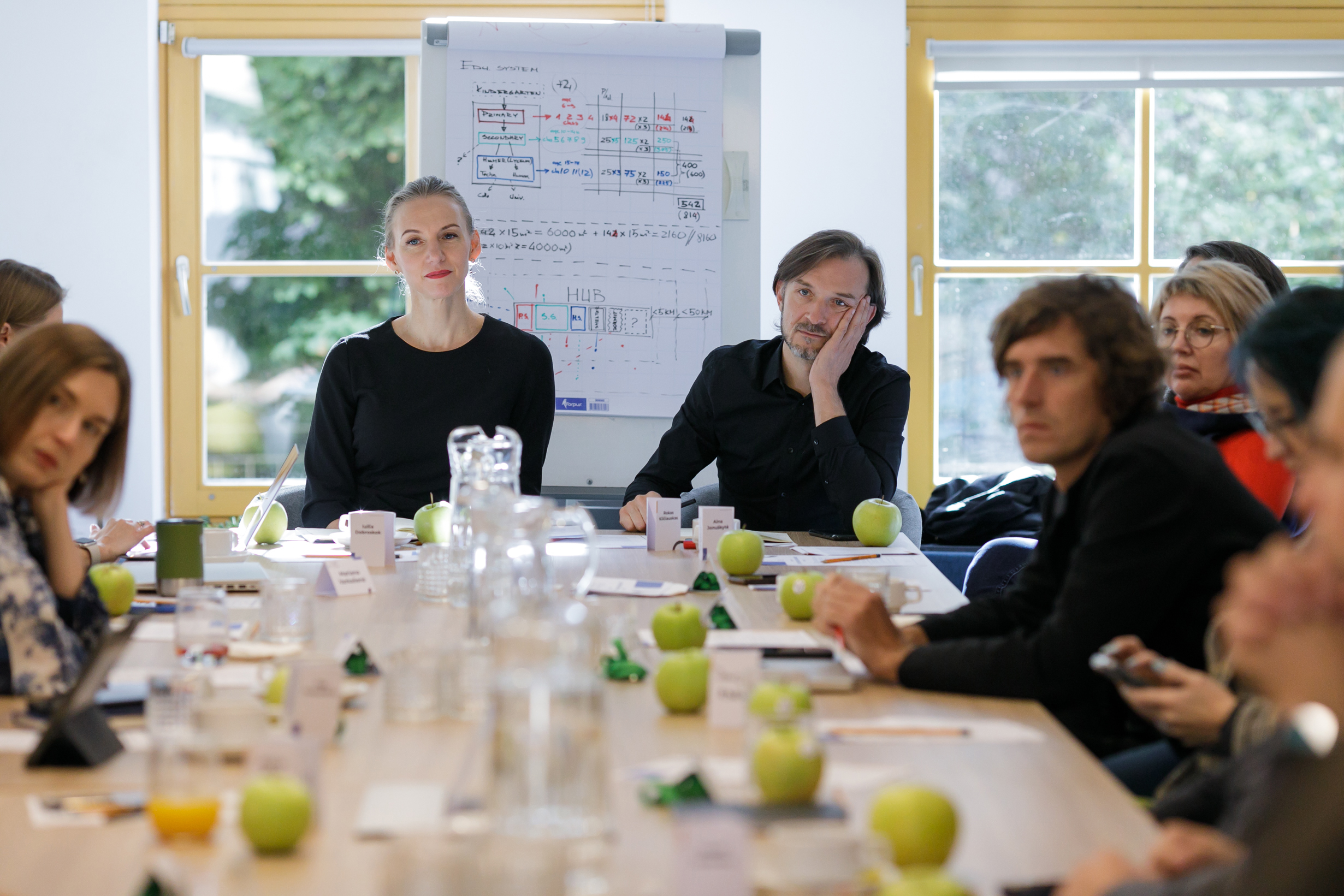
How was the winner chosen?
All the projects in the competition were evaluated based on five criteria:
- the quality of the architectural idea,
- its adaptability,
- functionality,
- sustainability,
- and the cost of design services.
The first prize-winning project, prepared by a joint Italian-Ukrainian architectural team, focuses on the efficient use of materials and rational construction solutions to maximize funds.
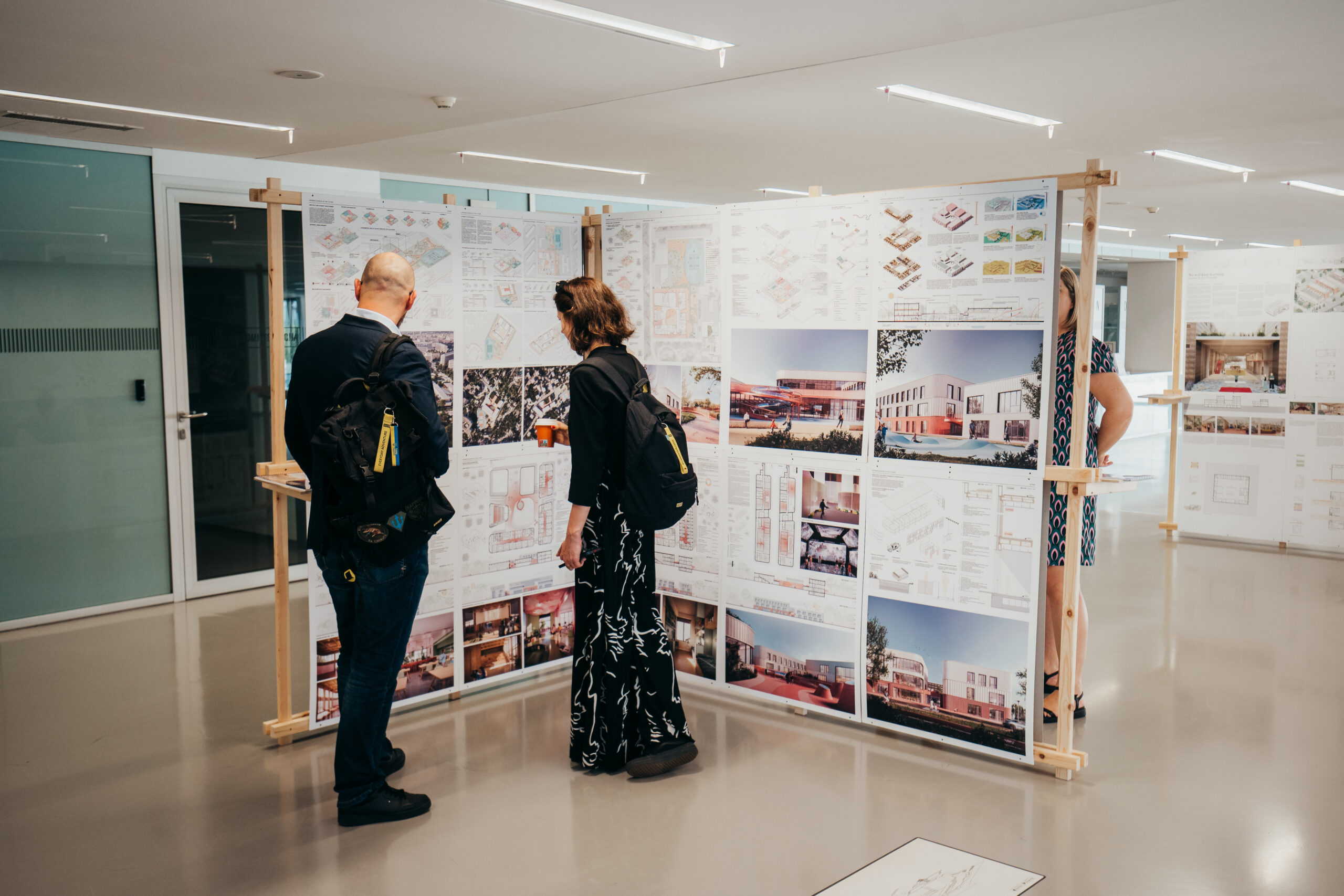
The materials used in the modular construction can be reused, making the construction more sustainable. The school's layout will also allow the various spaces within the school grounds for various community uses, such as events, meetings, and training.
A total of 15 projects were submitted to the call for proposals. They were evaluated by an international jury of experts, including architects Viktor Zotov (Ukraine), Carl Backstrand (Sweden), Helena Sandman (Finland), Viktorija Blažienė and Rolandas Palekas (Lithuania), Ana Novosad, former Minister of Education of Ukraine and founder of the NGO savED, and Artūras Žarnovskis, head of the program "Co-Create Future of Ukraine."
For reference:
In the Vinnytsia region, in the villages of Stryzhavka and Miziakivski Khutory, two restored schools were opened at the expense of the European Union, in which more than 700 students will study.
It was also reported that the construction of an underground school has begun in the Kharkiv region, which will be able to accommodate up to 150 students in one shift.




















































